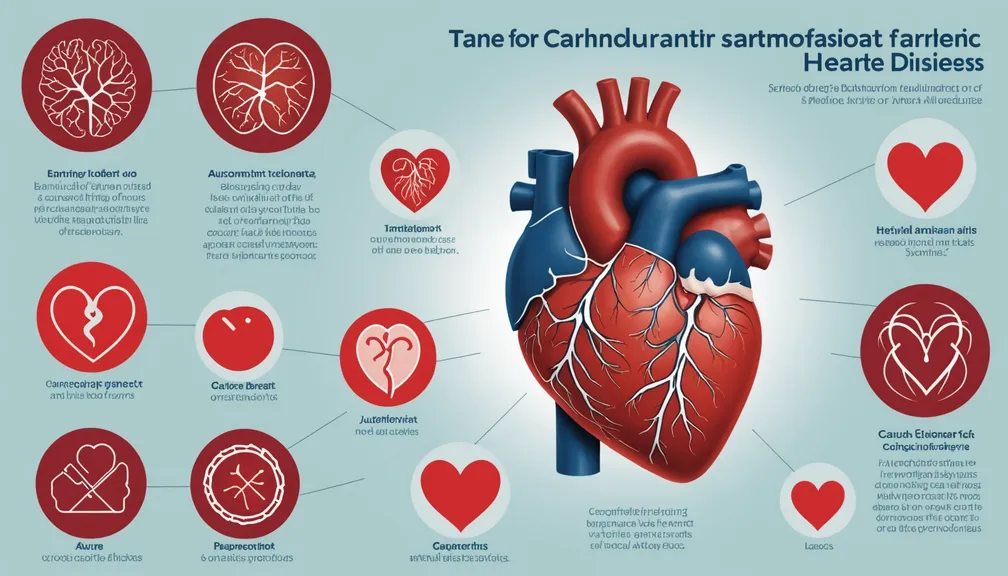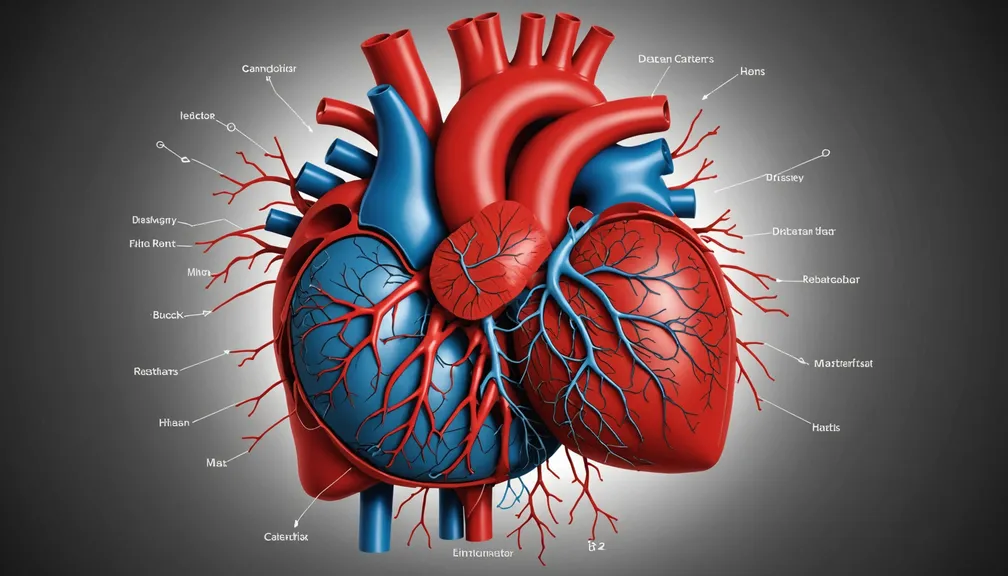Living with a Heart Condition: Emotional and Physical Well-being
Understanding Your Heart Condition
What is a Rare Cardiovascular Disease?
Rare cardiovascular diseases are uncommon conditions that affect the heart and blood vessels. Unlike more prevalent heart conditions, these diseases may have fewer cases worldwide, making them less familiar to the general public and even some healthcare professionals. Examples include inherited cardiomyopathies, which are genetic disorders affecting the heart muscle, and vascular anomalies, which involve abnormal blood vessel development.
Common Types of Rare Cardiovascular Diseases
- Hypertrophic Cardiomyopathy: Thickening of the heart muscle, which can impede blood flow.
- Arrhythmogenic Right Ventricular Cardiomyopathy: A condition where heart muscle is replaced by fatty or fibrous tissue, leading to irregular heartbeats.
- Ehlers-Danlos Syndrome: A group of disorders affecting connective tissues, often impacting blood vessel integrity.
- Pulmonary Arterial Hypertension: High blood pressure in the arteries connecting the heart and lungs.
- Takayasu Arteritis: Inflammation of the large arteries, particularly the aorta and its branches.
Managing Physical Health
Treatment Options
Managing a rare cardiovascular disease typically involves a combination of treatments tailored to the specific condition and the patient's needs: - Medications: To manage symptoms, control blood pressure, or prevent blood clots. - Surgical Procedures: Such as valve repair or replacement, heart transplantation, or procedures to correct vascular abnormalities. - Device Therapies: Including pacemakers or implantable cardioverter-defibrillators (ICDs) to regulate heart rhythms.
Medications and Their Roles
- Beta-Blockers: Help slow the heart rate and reduce blood pressure.
- Anticoagulants: Prevent blood clots that can lead to strokes or heart attacks.
- Diuretics: Reduce fluid buildup in the body, alleviating symptoms of heart failure.
- ACE Inhibitors: Relax blood vessels and decrease the workload on the heart.
Lifestyle Modifications
Adopting healthy lifestyle changes can significantly impact your heart condition: - Balanced Diet: Focus on low-sodium, heart-healthy foods to maintain optimal blood pressure and cholesterol levels. - Regular Exercise: Engage in approved physical activities to strengthen the heart and improve circulation. - Smoking Cessation: Eliminate tobacco use to reduce cardiovascular strain and improve overall health. - Weight Management: Maintain a healthy weight to lessen the heart's workload and decrease the risk of complications.
Emotional Well-being
Coping with a Heart Condition
Living with a rare heart disease can be emotionally challenging. It's important to acknowledge your feelings and seek support: - Acceptance: Understanding your condition is the first step toward adapting and finding ways to thrive. - Stress Management: Techniques such as deep breathing, meditation, or yoga can help reduce stress levels. - Positive Thinking: Focusing on what you can control and maintaining a hopeful outlook can improve your emotional resilience.
Mental Health Support
Accessing mental health services can provide invaluable assistance: - Therapists or Counselors: Professionals trained to help you navigate emotional challenges. - Support Groups: Connecting with others who have similar conditions can offer comfort and shared experiences. - Psychiatric Care: In some cases, medication may be necessary to manage anxiety or depression related to your heart condition.
Building a Support System
A strong support network can enhance your well-being: - Family and Friends: Lean on loved ones for emotional support and practical assistance. - Healthcare Team: Engage openly with your doctors and nurses to ensure comprehensive care. - Community Resources: Utilize local organizations and community services designed to support individuals with chronic illnesses.
Daily Living with a Heart Condition
Monitoring Your Health
Regular monitoring is crucial for managing your condition: - Scheduled Check-ups: Keep regular appointments with your healthcare providers to track your heart health. - At-Home Monitoring: Use devices like blood pressure cuffs or heart rate monitors as recommended by your doctor. - Symptom Tracking: Keep a journal of any new or worsening symptoms to discuss during medical visits.
Nutrition and Diet
Eating well supports heart health and overall well-being: - Heart-Healthy Foods: Incorporate fruits, vegetables, whole grains, lean proteins, and healthy fats into your meals. - Limit Sodium and Sugar: Reducing intake can help control blood pressure and prevent weight gain. - Stay Hydrated: Adequate fluid intake is essential, especially if you are on diuretics or other medications.
Exercise and Physical Activity
Staying active benefits both your heart and mental health: - Consult Your Doctor: Before starting any exercise regimen, discuss with your healthcare provider to determine safe activities. - Regular Activity: Aim for activities like walking, swimming, or cycling that strengthen the heart without overexertion. - Listen to Your Body: Pay attention to how you feel during and after exercise, and adjust based on your comfort and capacity.
Navigating Healthcare
Types of Doctors and Health Professionals You May Need
Managing a rare cardiovascular disease often requires a multidisciplinary team: - Cardiologist: A specialist in heart conditions who oversees your cardiac care. - Genetic Counselor: Provides information and support regarding inherited heart diseases. - Nurse Practitioner or Registered Nurse: Offers ongoing care and education about managing your condition. - Physical Therapist: Assists in developing safe exercise plans to improve physical strength and endurance. - Psychologist or Psychiatrist: Helps address mental health aspects related to living with a chronic illness.
Communicating with Your Healthcare Team
Effective communication ensures comprehensive and coordinated care: - Be Open and Honest: Share all your symptoms, concerns, and questions with your healthcare providers. - Prepare for Appointments: Write down questions or topics you want to discuss to ensure nothing is overlooked. - Follow Treatment Plans: Adhere to prescribed medications, lifestyle changes, and follow-up appointments.
Planning for the Future
Setting Health Goals
Establishing clear, achievable goals can guide your management plan: - Short-Term Goals: Such as taking daily walks or reducing sodium intake. - Long-Term Goals: Including maintaining a healthy weight or completing a prescribed treatment plan. - Review and Adjust: Regularly assess your goals with your healthcare team and make adjustments as needed.
Accessing Resources and Support
Utilize available resources to support your journey: - Educational Materials: Learn more about your condition through reputable sources provided by your healthcare team. - Financial Assistance Programs: Seek help if medical costs become a burden. - Advocacy Groups: Join organizations dedicated to rare cardiovascular diseases for additional support and information.
By understanding your rare cardiovascular disease and actively managing both your physical and emotional health, you can lead a fulfilling life. Remember, you are not alone—reach out to your healthcare team and support network whenever you need assistance.






